Quotes & Sayings About Pashtun
Enjoy reading and share 16 famous quotes about Pashtun with everyone.
Top Pashtun Quotes
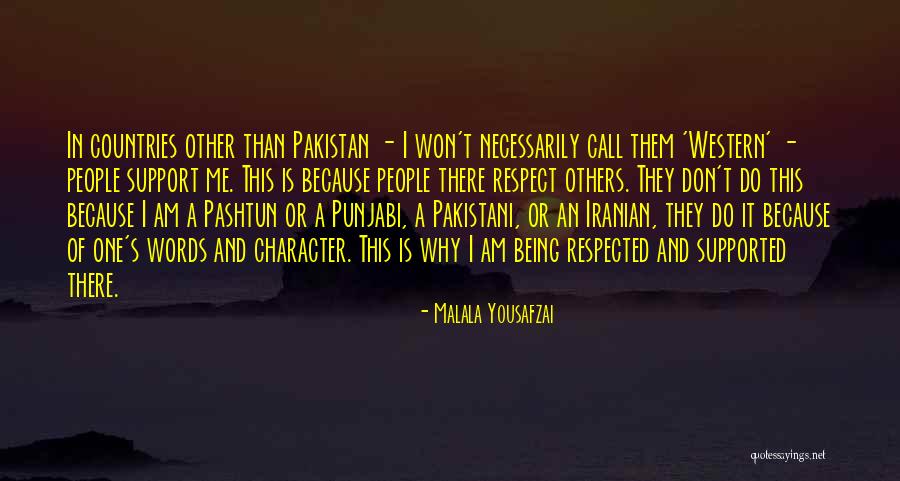
In countries other than Pakistan - I won't necessarily call them 'Western' - people support me. This is because people there respect others. They don't do this because I am a Pashtun or a Punjabi, a Pakistani, or an Iranian, they do it because of one's words and character. This is why I am being respected and supported there. — Malala Yousafzai
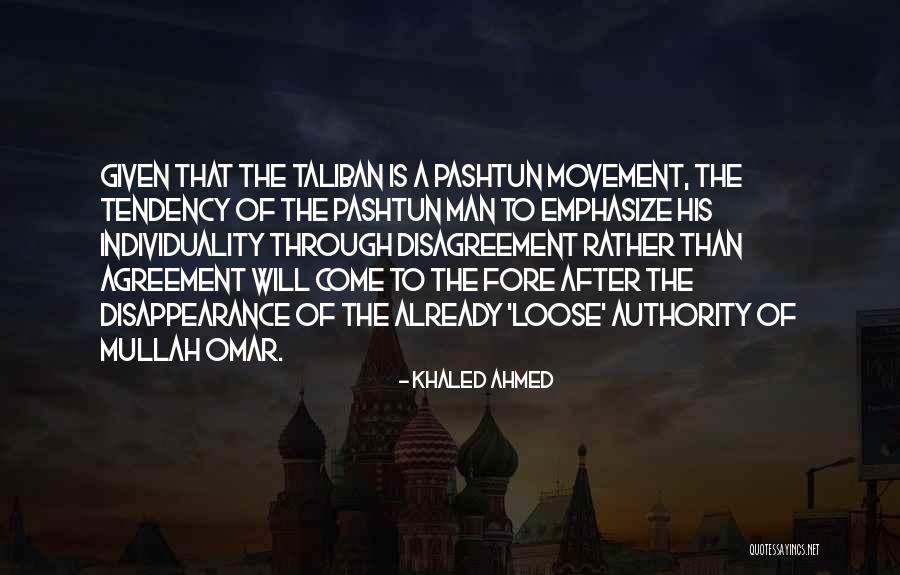
Given that the Taliban is a Pashtun movement, the tendency of the Pashtun man to emphasize his individuality through disagreement rather than agreement will come to the fore after the disappearance of the already 'loose' authority of Mullah Omar. — Khaled Ahmed
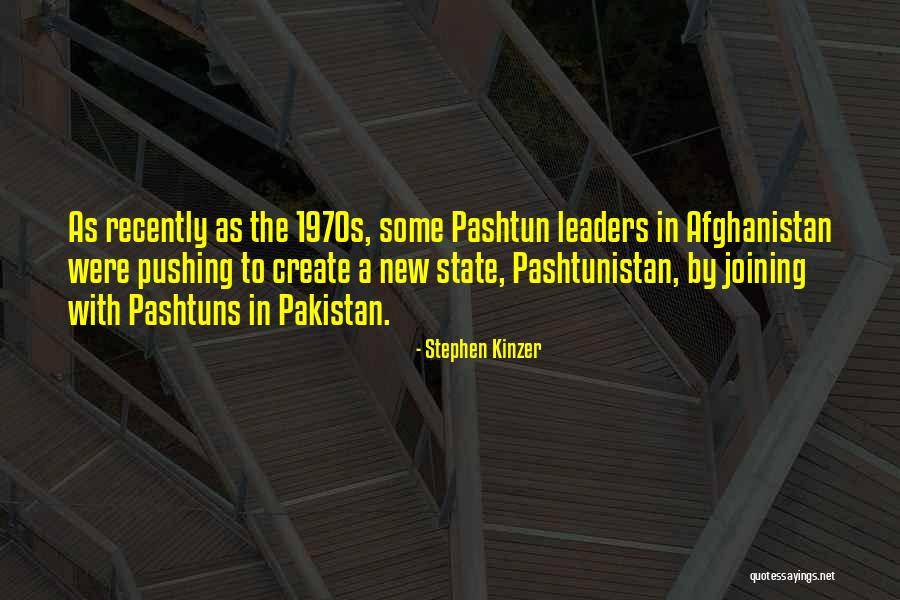
As recently as the 1970s, some Pashtun leaders in Afghanistan were pushing to create a new state, Pashtunistan, by joining with Pashtuns in Pakistan. — Stephen Kinzer
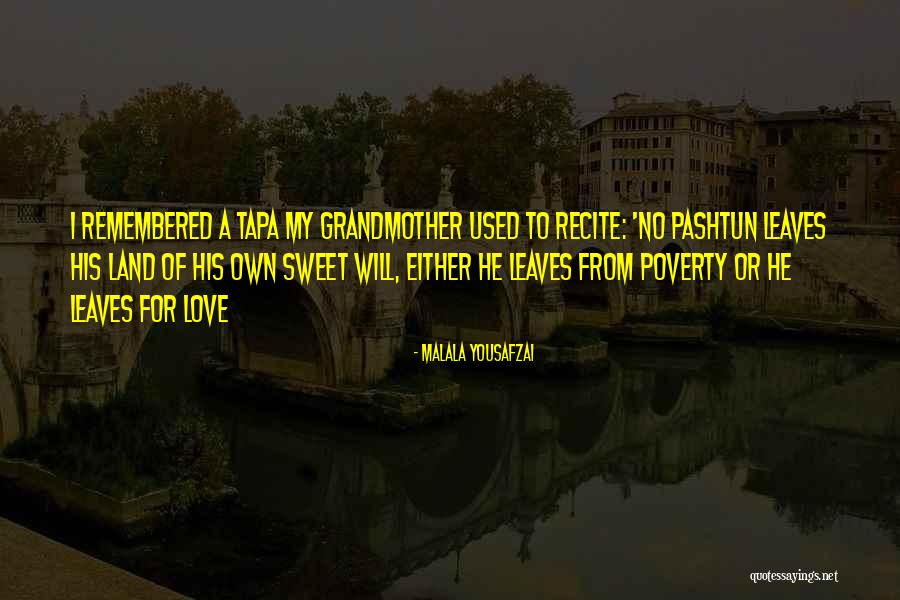
I remembered a tapa my grandmother used to recite: 'No Pashtun leaves his land of his own sweet will, Either he leaves from poverty or he leaves for love — Malala Yousafzai
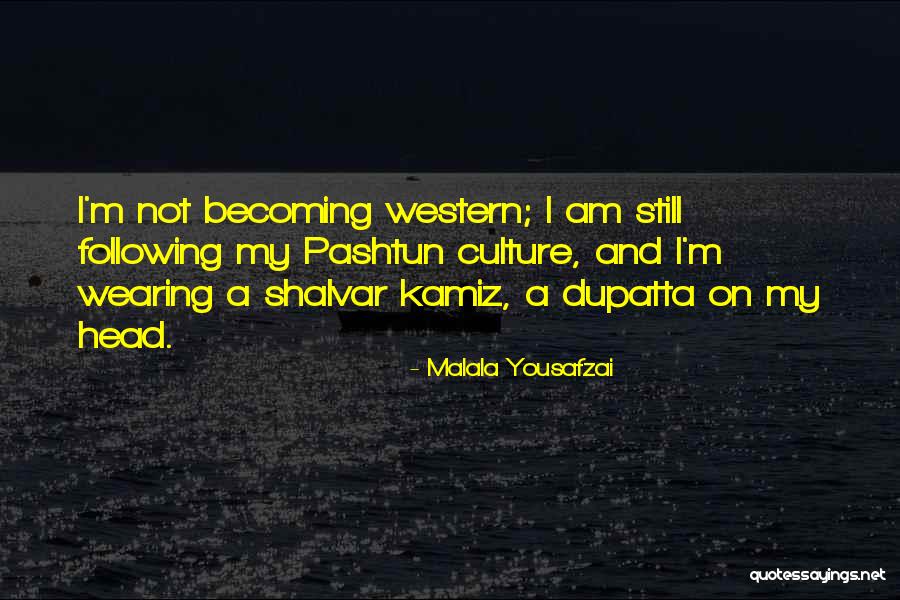
I'm not becoming western; I am still following my Pashtun culture, and I'm wearing a shalvar kamiz, a dupatta on my head. — Malala Yousafzai
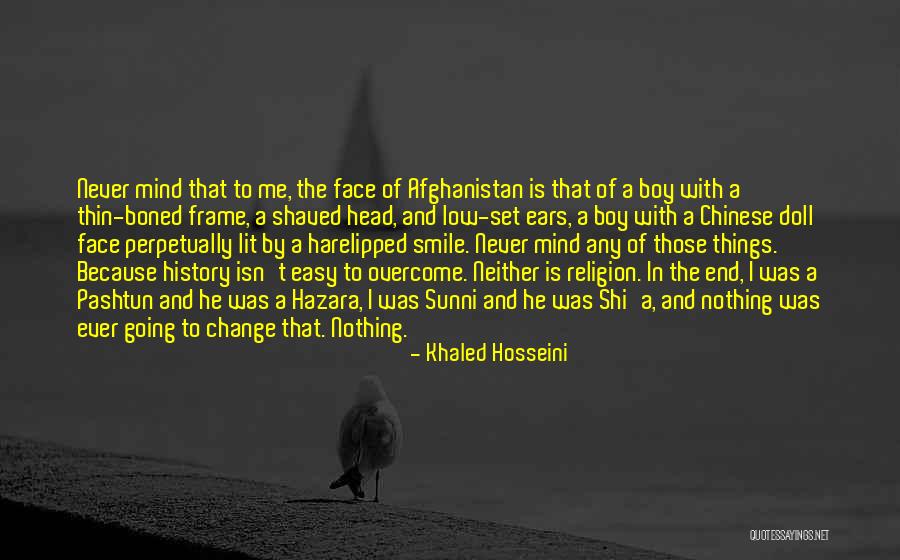
Never mind that to me, the face of Afghanistan is that of a boy with a thin-boned frame, a shaved head, and low-set ears, a boy with a Chinese doll face perpetually lit by a harelipped smile. Never mind any of those things. Because history isn't easy to overcome. Neither is religion. In the end, I was a Pashtun and he was a Hazara, I was Sunni and he was Shi'a, and nothing was ever going to change that. Nothing. — Khaled Hosseini
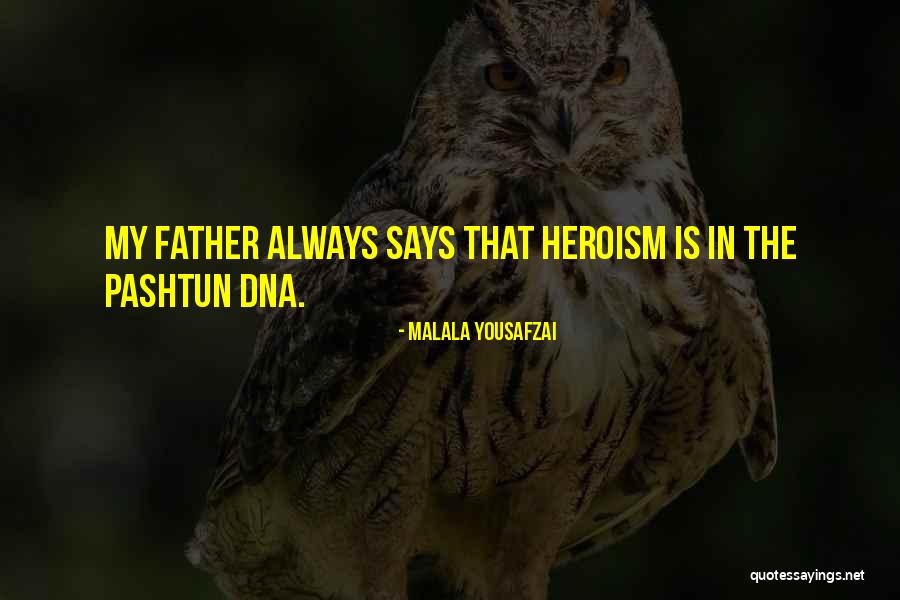
My father always says that heroism is in the Pashtun DNA. — Malala Yousafzai
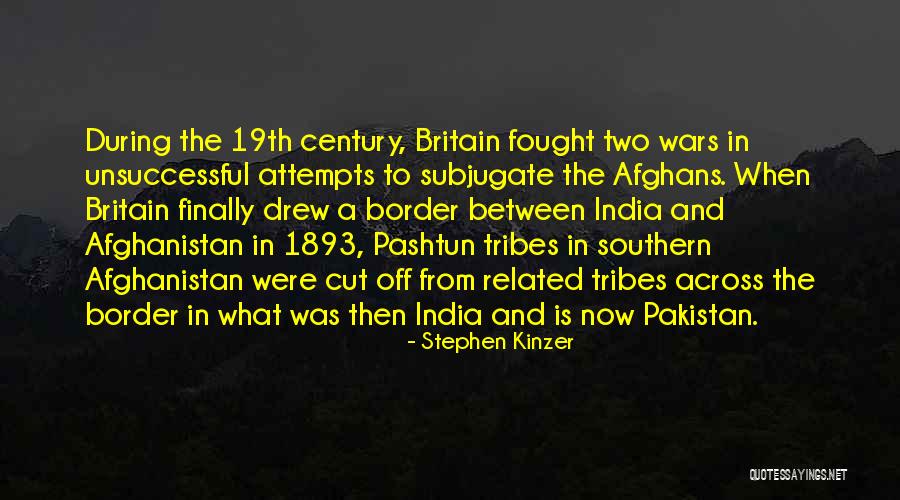
During the 19th century, Britain fought two wars in unsuccessful attempts to subjugate the Afghans. When Britain finally drew a border between India and Afghanistan in 1893, Pashtun tribes in southern Afghanistan were cut off from related tribes across the border in what was then India and is now Pakistan. — Stephen Kinzer
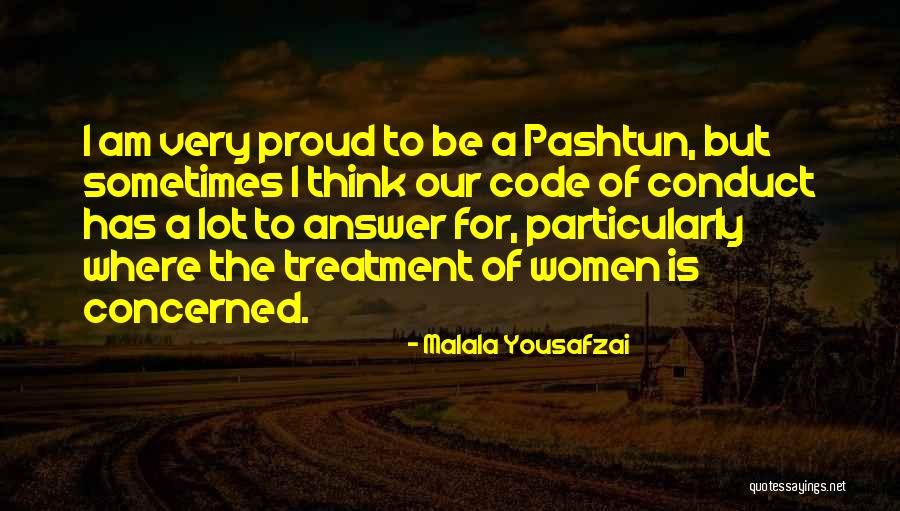
I am very proud to be a Pashtun, but sometimes I think our code of conduct has a lot to answer for, particularly where the treatment of women is concerned. — Malala Yousafzai

British General Andrew Skeen, who faced a similar military mission in 1939, wrote, "When planning a military expedition into Pashtun tribal areas, the first thing you must plan is your retreat. All expeditions into this area sooner or later end in retreat under fire. — Eric Blehm
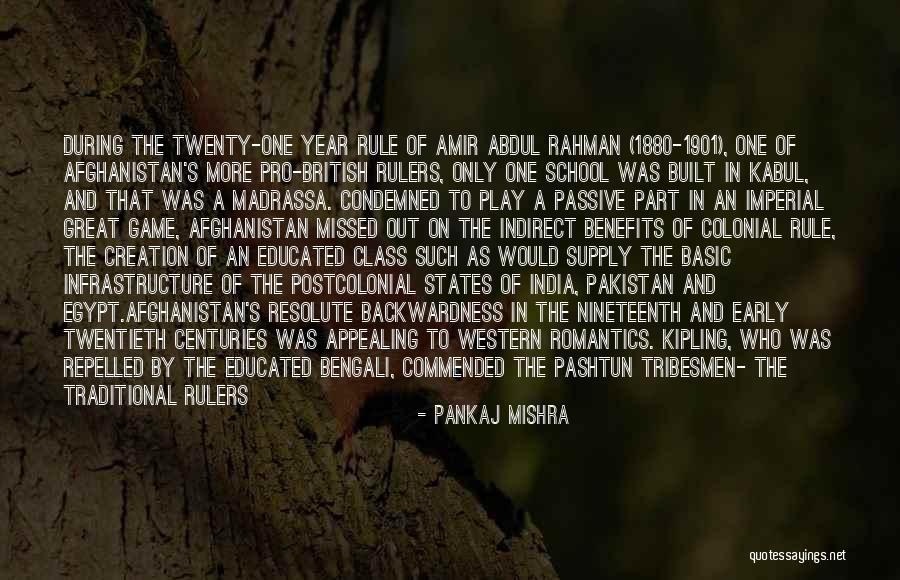
During the twenty-one year rule of Amir Abdul Rahman (1880-1901), one of Afghanistan's more pro-British rulers, only one school was built in Kabul, and that was a madrassa. Condemned to play a passive part in an imperial Great Game, Afghanistan missed out on the indirect benefits of colonial rule, the creation of an educated class such as would supply the basic infrastructure of the postcolonial states of India, Pakistan and Egypt.
Afghanistan's resolute backwardness in the nineteenth and early twentieth centuries was appealing to Western romantics. Kipling, who was repelled by the educated Bengali, commended the Pashtun tribesmen- the traditional rulers of Afghanistan and also a majority among Afghans- for their courage, love of freedom, and sense of honour. These cliches about the Afghans, which would be amplified in our own time by American journalists and politicians, also had some effect on Muslims themselves. — Pankaj Mishra
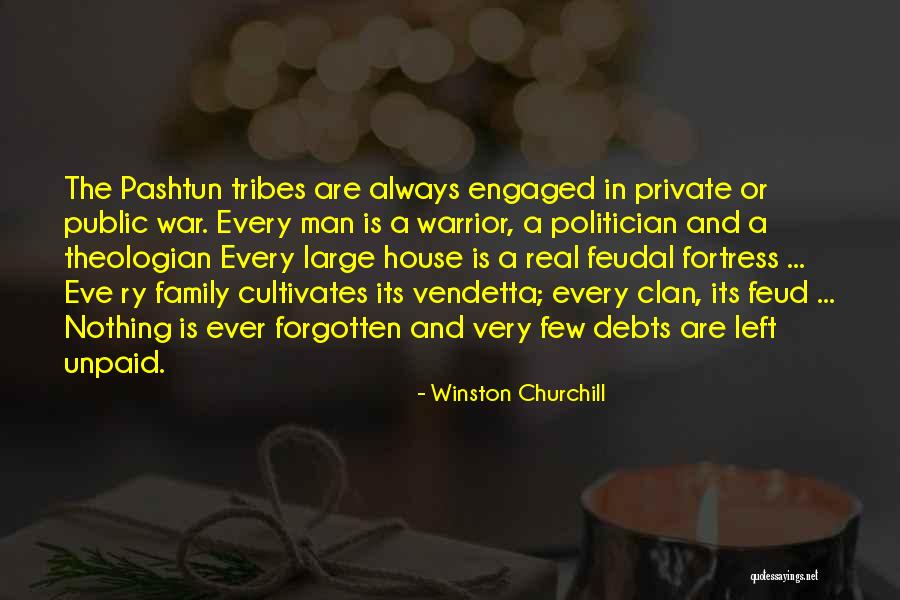
The Pashtun tribes are always engaged in private or public war. Every man is a warrior, a politician and a theologian Every large house is a real feudal fortress ... Eve ry family cultivates its vendetta; every clan, its feud ... Nothing is ever forgotten and very few debts are left unpaid. — Winston Churchill
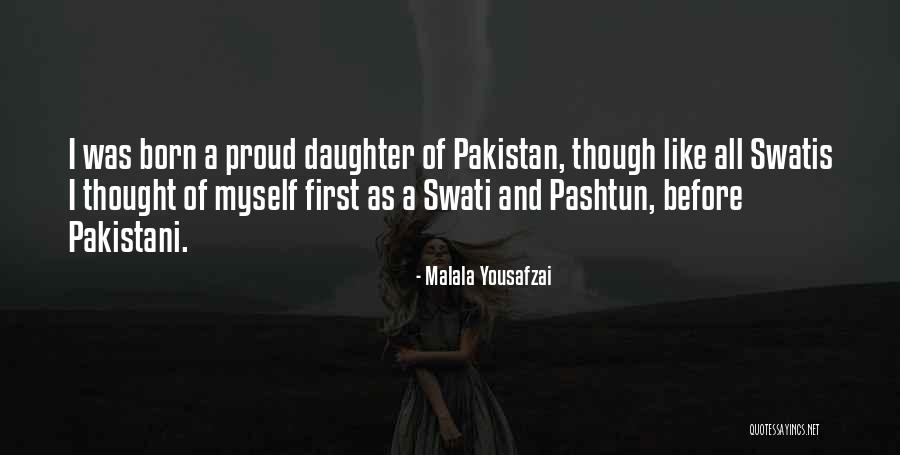
I was born a proud daughter of Pakistan, though like all Swatis I thought of myself first as a Swati and Pashtun, before Pakistani. — Malala Yousafzai
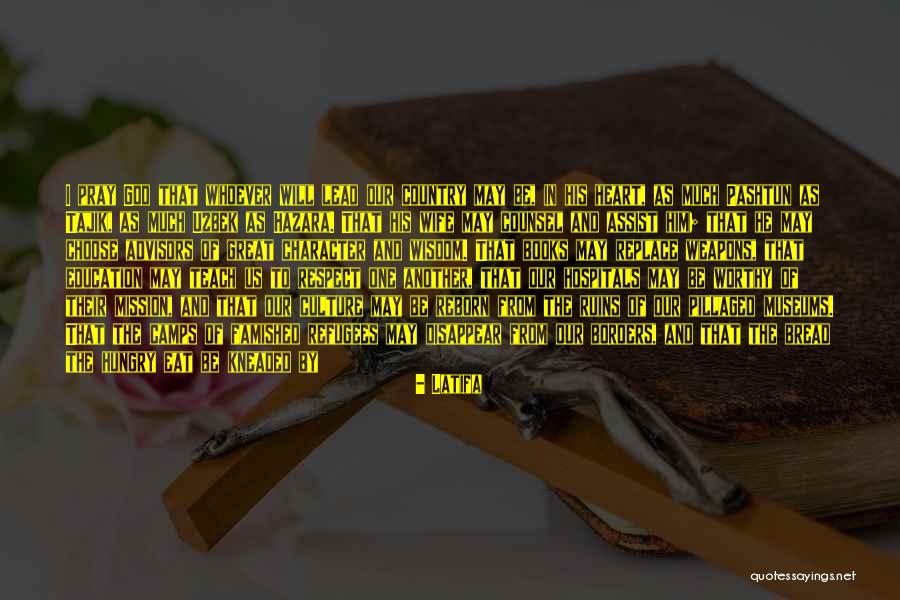
I pray God that whoever will lead our country may be, in his heart, as much Pashtun as Tajik, as much Uzbek as Hazara. That his wife may counsel and assist him; that he may choose advisors of great character and wisdom. That books may replace weapons, that education may teach us to respect one another, that our hospitals may be worthy of their mission, and that our culture may be reborn from the ruins of our pillaged museums. That the camps of famished refugees may disappear from our borders, and that the bread the hungry eat be kneaded by their own hands.
I will do more than pray, because when the last talib has put away his black turban and I can be a free woman in a free Afghanistan, I will take up my life there once more and do my duty as a citizen, as a woman, and, I hope, as a mother. — Latifa
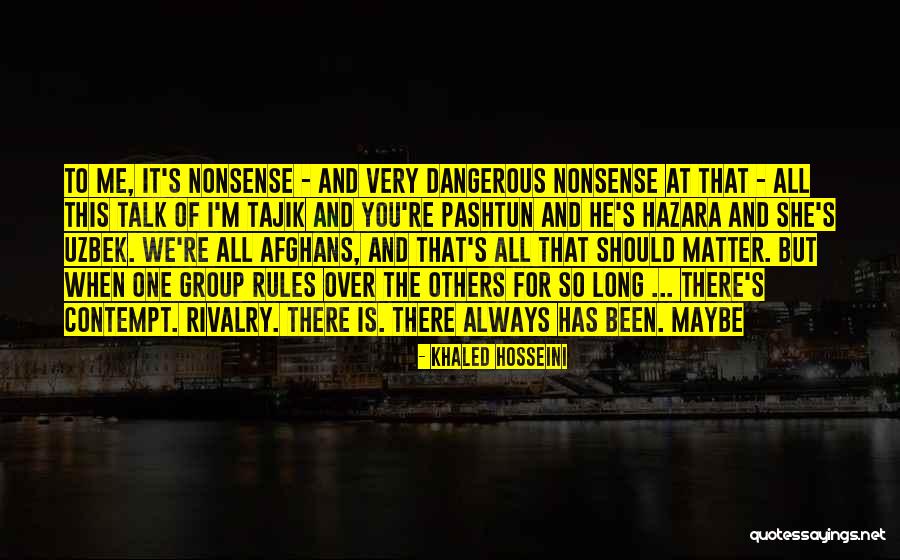
To me, it's nonsense - and very dangerous nonsense at that - all this talk of I'm Tajik and you're Pashtun and he's Hazara and she's Uzbek. We're all Afghans, and that's all that should matter. But when one group rules over the others for so long ... There's contempt. Rivalry. There is. There always has been. Maybe — Khaled Hosseini
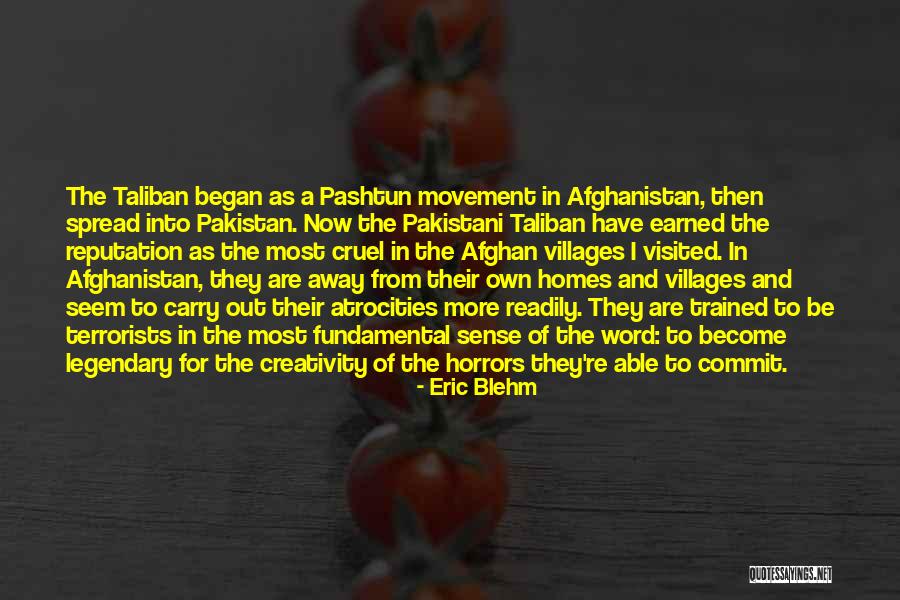
The Taliban began as a Pashtun movement in Afghanistan, then spread into Pakistan. Now the Pakistani Taliban have earned the reputation as the most cruel in the Afghan villages I visited. In Afghanistan, they are away from their own homes and villages and seem to carry out their atrocities more readily. They are trained to be terrorists in the most fundamental sense of the word: to become legendary for the creativity of the horrors they're able to commit. — Eric Blehm





